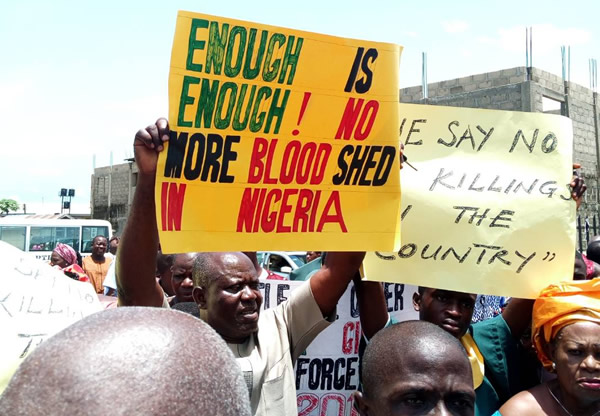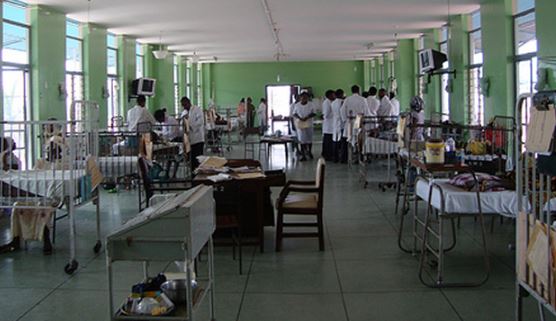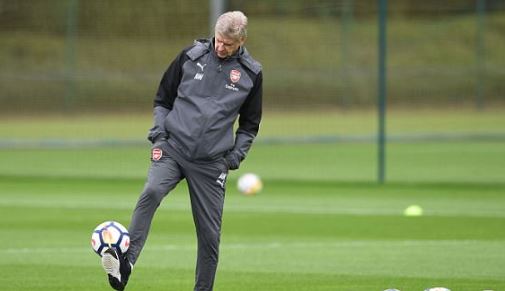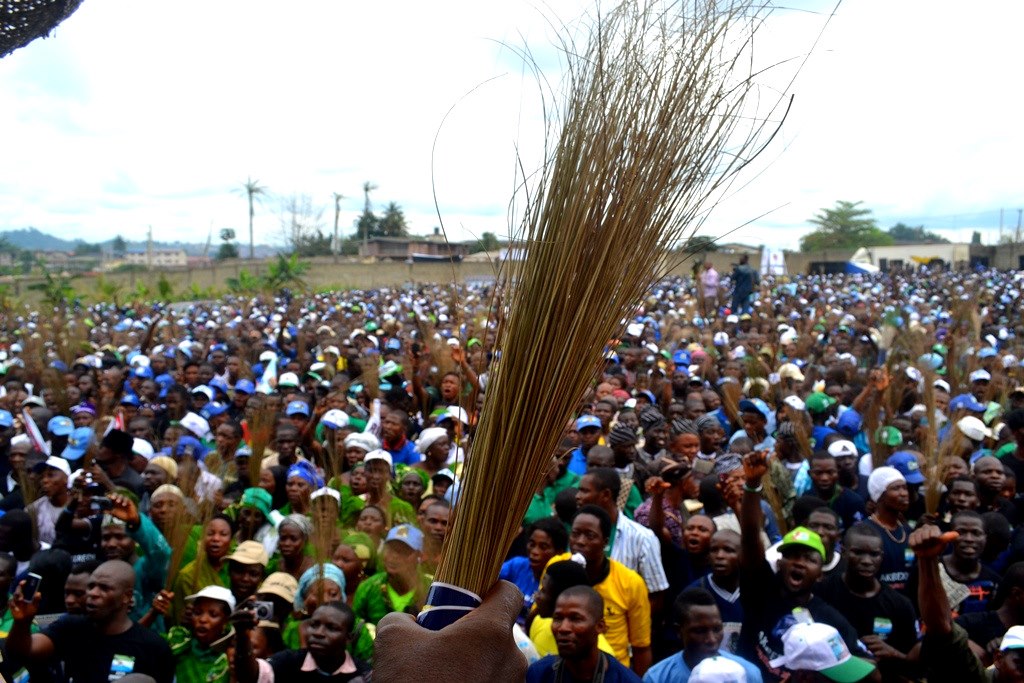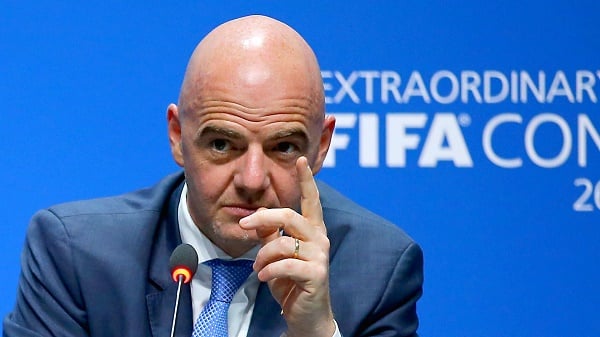Civil society organisations (CSOs) have expressed grave concerns about the state of the nation.
In a statement released on Wednesday and signed by 18 CSOs, seven areas of concern were highlighted. They include the violation of electoral guidelines, delay in legislative actions, killings in parts of the country and lingering high profile corruption cases.
Other issues raised by the CSOs include poor implementation of sustainable development goals (SDGs) and unresolved political conflicts.
“We the undersigned Civil Society groups working on transparency, accountability and good governance in the country express utmost worries over the recent but unwary developments invading the nation’s socio-economic and political spheres with propensity to back-pedal progress in achieving a stable, secured and prosperous country,” the statement read.
Advertisement
“We are worried by the persistent violation of the provisions of the Electoral Act with the improper use of electoral timetable as announced by the Independent National Electoral Commission (INEC) by political parties and politicians who continue to engage in premature campaign activities.
“The on-going recurring unresolved leadership, congressional and conventional conflicts erupting within political parties remain serious concerns that, in the absence of immediate appropriate measures and intervention, may not only erode internal party democracy but also spell doom for electoral credibility in the 2019 General Elections.
“We express unreserved worries over the recurring but unhealthy and divisive verbal attacks and hate speeches which manifest in the utterances of politicians, political supporters, political party leaders, traditional rulers and religious leaders.”
Advertisement
The group faulted the alleged corruption and lack of transparency and accountability in asset recovery while questioning the non-appointment of the national procurement council.
The groups said corruption in Nigeria “has assumed worrisome heights,” adding that 70 percent of instances of the menace is constituted in the public sector.
“The brazenness of corruption in Nigeria is an indicator of years of immense rot and institutional collapse,” the statement continued.
“On transparency and accountability in asset recovery, in 2016 at the Anti-corruption Summit in London, the administration committed to strengthening asset recovery and management legislation through the passage of the Proceeds of Crime Bill to provide for transparent management of returned assets and non-conviction based approach to asset recovery; and develop internationally endorsed guidelines for the transparent and accountable management of returned stolen assets. Two years after the Summit, the administration still lags in fulfilling the commitments.
Advertisement
“With the overlapping mandates of anti-corruption agencies on asset recovery management, it is unclear which of the many anti-corruption institutions takes a lead in the coordination of asset recovery efforts. Crucial legislature with a potential to establish an acceptable asset recovery management framework such as the Proceeds of Crime Bill, 2014, is stalled without explanation.
“We demand immediate development of clear policy actions on asset recovery as recommended by Global Forum for Asset Recovery in 2017 to revert current trend and successfully combat corruption in Nigeria. The inclusion of CSOs in the nation-wide discussion on the management and the end-use of recovered assets is imperative.
“Moreover, the violation of the Public Procurement Act 2007 continues to be done through the non-appointment of the National Procurement Council as required by law. The Federal Executive Council (FEC) continues to arrogate to itself the powers to approve contracts in clear violation of the Public Procurement Act. This act of FEC does not show a government ready to abide by the rule of law and ensuring transparency in contract awards.
“We therefore call on the government to follow the law and set up the National Procurement Council as the Act stipulates.”
Advertisement
Commenting on unresolved cases of high profile corruption allegations, the groups said: “We are concerned over the administration’s emerging dwindling capability in handling high profile corruption cases, giving chances to culprits to walk freely on the street and positive signal to potential culprits to freely engage in corruption.
“We are worried over the administration’s continued unwillingness to exert appropriate sanction against high profile erring officials.”
Advertisement
The groups also expressed concerns over recruitment in the security agencies and the welfare of security personnel.
“We are bothered that personnel of the Armed Forces, the Police and other Intelligence agencies wallow in poor working conditions and inadequate equipment combined with poorly paid salaries without adequate insurance, in spite of the enormous work they do and risk to their lives on a daily basis. This creates low morale for personnel to fully engage in their duties,” the statement said.
Advertisement
Furthermore, the CSOs said the low security presence “to effectively secure citizens’ lives and property at national and state levels” is worrying.
It decried that “a large number of security personnel and equipment are endlessly attached to politicians, government officials and net-worth individuals”.
Advertisement
“This inadequacy of personnel and limited equipment have continued to pave way for recurring politically and other socially motivated conflicts as exemplified by farmers and pastoralists’ violence across Benue, Taraba, Adamawa and Kaduna states; cattle rustling in Zamfara State; militancy in the Niger Delta and kidnapping all across Nigeria.”
The CSOs further queried the “slow” implementation of the sustainable development goals (SDGs) by the Nigerian government.
It said since the goals were adopted by 189 countries in September 2015, “Nigeria is yet to fully commence implementation. There is still no strategic plan of action on implementation and harmonization of various state efforts on SDGs.
“The SDGs is still inadequately funded and it appears from the 2017 National Voluntary Review Report that there are no concrete indicators for monitoring progress”.
According to the CSOs, the federal government has been slow in the implementation of reforms in attractive sectors, citing examples of the petroleum industry governance bill (PIGB) and clean up of Ogoni land in Rivers state.
The groups also lashed out at the national assembly for its “delay in taking legislative actions” and also criticised the lawmakers over the slow pace in passing the budget.
The CSOs, however, lauded the judiciary for “efforts to clean up its ranks by taking disciplinary action by erring judges” and the “appreciable progress in the recent trial of high profile corruption cases”.
Add a comment

